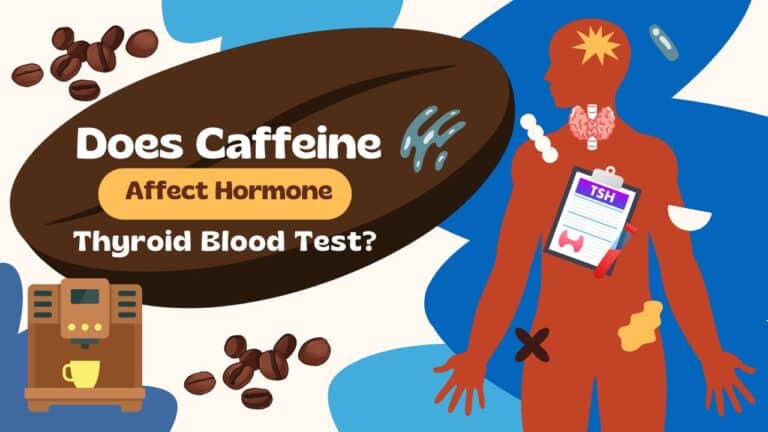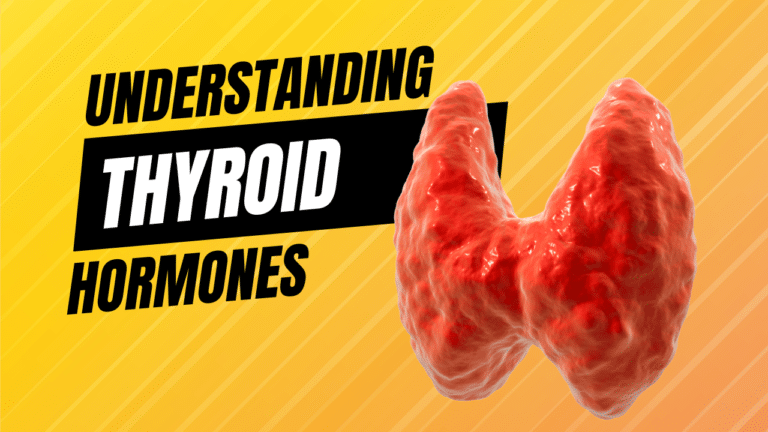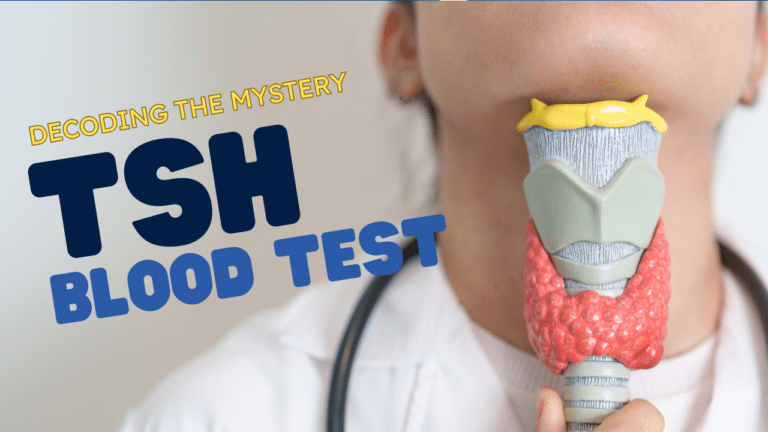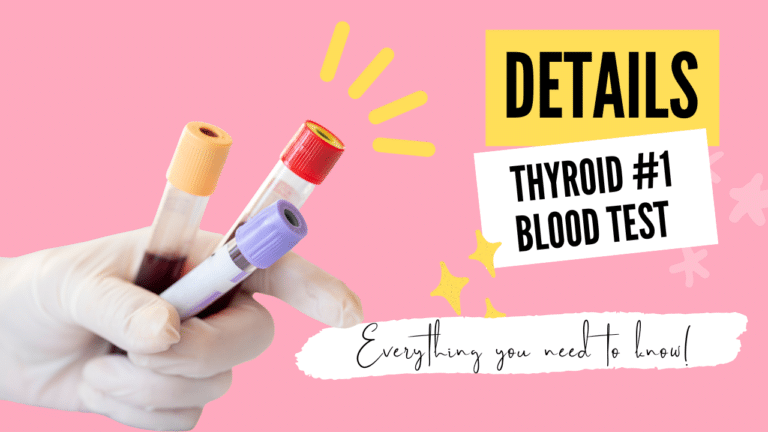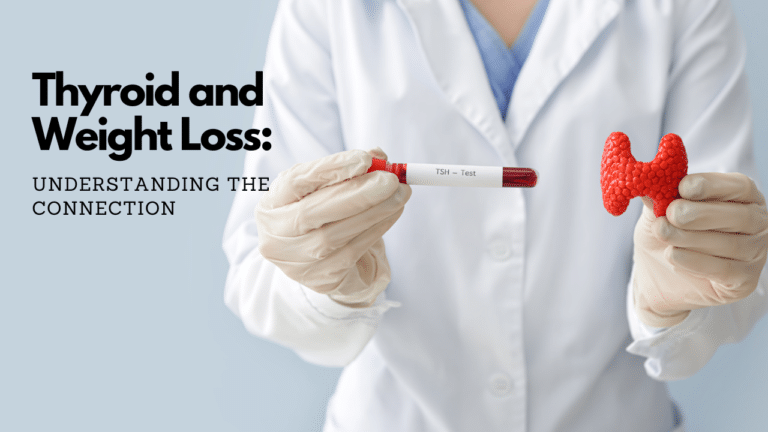Iodine serves as the fundamental building block for thyroid hormone synthesis, making it one of the most critical nutrients for thyroid health. This trace element enables your thyroid gland to produce thyroxine (T4) and triiodothyronine (T3), hormones that regulate metabolism, energy production, growth, and development throughout your body. However, achieving optimal thyroid function requires finding the right balance—too little iodine can lead to hypothyroidism and goiter, while excessive intake may trigger hyperthyroidism or autoimmune thyroid conditions. Understanding your individual iodine needs empowers you to make informed dietary choices and seek appropriate testing when necessary.
Why Iodine Matters for Thyroid Function
Iodine’s relationship with thyroid health represents one of the most direct nutrient-hormone connections in human physiology. Without adequate iodine, your thyroid simply cannot manufacture the hormones your body needs to function optimally. The intricate process of thyroid hormone synthesis depends entirely on the thyroid gland’s ability to capture and concentrate iodine from your bloodstream.
The Mechanism of Iodine Uptake
The thyroid regulates iodine uptake via the sodium-iodine symporter, a specialized protein that actively transports iodine from the blood into thyroid cells. This remarkable system allows your thyroid to concentrate iodine to levels 20-40 times higher than found in your blood, ensuring sufficient raw material for hormone production even when dietary intake varies.
From Iodine to Hormones
Once inside the thyroid gland, iodine undergoes a complex transformation process. The thyroid combines iodine with the amino acid tyrosine to create thyroglobulin, the precursor to thyroid hormones. Through enzymatic processes, this combination eventually yields T4 (containing four iodine atoms) and T3 (containing three iodine atoms), with T3 being the more metabolically active form.
Broader Health Implications
Beyond hormone production, adequate iodine status supports proper growth and development, particularly crucial during pregnancy and early childhood. Iodine deficiency during these critical periods can result in irreversible cognitive impairment, highlighting why maintaining optimal intake throughout life remains essential for overall health and well-being.
Recommended Daily Iodine Intake
Understanding your iodine requirements helps ensure you’re getting neither too little nor too much of this essential nutrient. Recommendations vary based on age, sex, and life stage, with special considerations for periods of increased demand like pregnancy and lactation.
Adult Requirements
The recommended daily iodine intake for healthy adults is generally 150 micrograms, an amount that supports normal thyroid hormone production without risk of excess. This recommendation assumes normal thyroid function and adequate absorption, though individual needs may vary based on factors like existing thyroid conditions, medications, and overall health status.
Pregnancy and Lactation Needs
Pregnancy dramatically increases iodine requirements due to increased maternal thyroid hormone production and the need to support fetal development. Pregnant women require approximately 220 μg daily, while lactating mothers need even more—about 290 μg daily—to ensure adequate iodine transfer through breast milk for the developing infant’s thyroid function.
Life Stage Considerations
Children and adolescents have lower absolute iodine needs but require adequate intake to support proper growth and cognitive development. Elderly adults may need careful monitoring as their ability to absorb and utilize iodine can change with age, while certain medications commonly used in this population can affect thyroid function.
Global Standards and Monitoring
The World Health Organization defines adequate iodine status by urinary iodine concentrations of 100–199 μg/L in adults and 150–249 μg/L during pregnancy. These benchmarks help healthcare providers assess whether populations are meeting their iodine needs through dietary sources and supplementation programs.
Iodine Deficiency: Risks and Symptoms
Despite widespread salt iodization programs, iodine deficiency remains a significant health concern in many parts of the world. Understanding the risks and recognizing early symptoms enables prompt intervention before serious complications develop.
Clinical Manifestations
The most visible sign of iodine deficiency is goiter—enlargement of the thyroid gland as it attempts to capture more iodine from the bloodstream. However, deficiency can cause subtler symptoms including fatigue, weight gain, cold intolerance, and cognitive difficulties that may be mistaken for other conditions.
Developmental Consequences
Iodine deficiency remains the most common cause of preventable brain damage worldwide, particularly when it occurs during pregnancy or early childhood. Severe deficiency during fetal development can result in cretinism, characterized by severe intellectual disability, growth retardation, and developmental delays.
Vulnerable Populations
Certain groups face higher risks of iodine deficiency, including pregnant and lactating women, vegans and vegetarians who avoid seafood and dairy, people living in areas with iodine-poor soil, and those following salt-restricted diets for medical reasons. These populations may benefit from additional monitoring and targeted interventions.
Persistent Global Challenge
Even in regions with iodization programs, deficiency can still occur due to factors like inadequate program coverage, consumer preference for non-iodized salt, or increased needs that exceed standard recommendations. This reality underscores the importance of individual assessment rather than assuming adequacy based on population-level interventions.
Excess Iodine: When Too Much Becomes Harmful
While iodine deficiency receives considerable attention, excessive iodine intake poses equally serious risks to thyroid health. Understanding the dangers of iodine excess helps prevent well-intentioned supplementation from backfiring and causing thyroid dysfunction.
The U-Shaped Risk Curve
Both iodine deficiency and excess pose risks to thyroid function, creating what researchers describe as a U-shaped risk curve. This means that both too little and too much iodine can trigger similar thyroid problems, though through different mechanisms.
Mechanisms of Iodine Toxicity
Excessive iodine intake can overwhelm the thyroid’s protective mechanisms, leading to either hyperthyroidism or, paradoxically, hypothyroidism. The thyroid may become “stunned” by high iodine levels, temporarily shutting down hormone production. In susceptible individuals, excess iodine can trigger autoimmune thyroid conditions like Hashimoto’s thyroiditis or Graves’ disease.
Supplement-Related Risks
Over-the-counter iodine supplements often contain doses far exceeding daily requirements, sometimes providing thousands of micrograms per serving. Over-supplementation dangers are particularly concerning for individuals with existing thyroid conditions, who may experience rapid worsening of symptoms or development of new thyroid problems.
Signs of Iodine Excess
Symptoms of iodine toxicity can include thyroid gland swelling, hyperthyroid symptoms like rapid heartbeat and anxiety, or hypothyroid symptoms like fatigue and weight gain. The similarity to deficiency symptoms makes professional evaluation essential when thyroid symptoms develop.
Food Sources of Iodine
Understanding which foods provide iodine helps you maintain adequate intake through dietary choices rather than relying solely on supplements. Natural food sources offer iodine in amounts that are generally safe and well-absorbed by the body.
Primary Dietary Sources
Seafood stands out as the richest natural source of iodine, with ocean fish, shellfish, and seaweed providing substantial amounts. Dairy products contribute significant iodine due to iodine-containing compounds used in dairy processing and cattle feed. Eggs from hens with iodine-supplemented feed also provide meaningful amounts.
Iodized Salt and Fortified Foods
Iodized salt remains the most widespread and effective public health intervention for preventing iodine deficiency. Just one-quarter teaspoon of iodized salt provides approximately the daily adult requirement. Some bread and grain products are also fortified with iodine in certain countries, contributing to overall intake.
Geographic Variations
The iodine content of plant foods varies dramatically based on soil iodine levels, which differ significantly by geographic region. Coastal areas typically have higher soil iodine levels, while inland and mountainous regions often have iodine-poor soils that produce crops with minimal iodine content.
Seaweed: A Concentrated Source
Various seaweed types contain extremely high iodine levels, with some varieties providing thousands of micrograms per serving. While seaweed can be an excellent iodine source, the wide variation in iodine content between species and preparations requires careful consideration to avoid excessive intake.
Testing Your Iodine and Thyroid Status
Objective testing provides the most reliable way to assess whether your iodine intake meets your individual needs and supports optimal thyroid function. Understanding available tests helps you make informed decisions about monitoring your thyroid health.
Urinary Iodine Testing
Urinary iodine concentration reflects recent dietary intake and provides the most practical method for assessing iodine status. Since the kidneys excrete excess iodine, urine levels correlate well with daily intake, though they don’t necessarily reflect long-term iodine stores or thyroid function.
Comprehensive Thyroid Assessment
Walk-In Lab offers comprehensive thyroid panels that measure TSH, free T4, and free T3, providing insights into how well your thyroid is functioning regardless of your iodine status. These tests can reveal whether dietary changes or iodine interventions are affecting thyroid hormone levels appropriately.
Integrated Monitoring Approach
Combining urinary iodine testing with thyroid function tests offers the most complete picture of how iodine intake affects your thyroid health. This approach enables personalized adjustments to diet, supplementation, or medical treatment based on objective data rather than guesswork.
When to Consider Testing
Testing becomes particularly valuable if you’re experiencing thyroid symptoms, following restrictive diets, taking iodine supplements, pregnant or planning pregnancy, or have a family history of thyroid disorders. Regular monitoring helps ensure interventions are working and prevents both deficiency and excess.
Practical Tips for Maintaining Balanced Iodine Intake
Achieving optimal iodine balance requires thoughtful attention to dietary choices and lifestyle factors. These practical strategies help ensure adequate intake while avoiding excessive amounts that could disrupt thyroid function.
Smart Salt Strategies
Use iodized salt for cooking and seasoning, but practice moderation to avoid excessive sodium intake. Store iodized salt in cool, dry places away from light to preserve iodine content, and note that specialty salts like sea salt or Himalayan pink salt typically contain minimal iodine unless specifically fortified.
Incorporating Iodine-Rich Foods
Include seafood in your weekly meal planning, aiming for two servings of fish per week. Choose dairy products and eggs when possible, and consider moderate amounts of seaweed snacks or adding small amounts of seaweed to soups and salads for variety.
Supplement Caution
Avoid routine iodine supplementation unless recommended by a healthcare provider based on testing results or specific medical conditions. If supplementation is necessary, choose products with reasonable doses close to daily requirements rather than megadose formulations.
Special Considerations During Pregnancy
Work with healthcare providers to ensure adequate iodine intake during pregnancy and lactation, as needs increase substantially during these periods. Prenatal vitamins often contain iodine, but amounts vary widely between brands and may not meet increased needs.
Frequently Asked Questions
How much iodine do adults need daily?
Most healthy adults need approximately 150 micrograms of iodine daily to support normal thyroid function. This amount increases during pregnancy to 220 micrograms and during lactation to 290 micrograms. These recommendations assume normal thyroid function and adequate absorption, though individual needs may vary based on health status and other factors.
Can iodine deficiency still occur if I use iodized salt?
Yes, iodine deficiency can still develop even with iodized salt use. Factors like inadequate salt intake, storage conditions that reduce iodine content, preference for non-iodized specialty salts, or increased individual needs may lead to deficiency. Additionally, some people following low-sodium diets may not consume enough iodized salt to meet their iodine requirements.
What are signs of too much iodine?
Excess iodine can cause symptoms similar to both hyperthyroidism and hypothyroidism, including thyroid enlargement, rapid or irregular heartbeat, anxiety, fatigue, weight changes, and sleep disturbances. Some people may develop a metallic taste, increased salivation, or skin reactions. These symptoms require professional evaluation since they overlap with many other conditions.
Should I take iodine supplements for thyroid support?
Iodine supplementation should only be considered based on testing results or specific medical recommendations. Many people get adequate iodine through diet, and unnecessary supplementation can worsen existing thyroid conditions or trigger new problems. Those with autoimmune thyroid diseases are particularly susceptible to iodine-induced complications.
How do I check if I’m getting enough iodine?
Urinary iodine concentration testing provides the most practical assessment of recent iodine intake, while thyroid function tests (TSH, free T4, free T3) evaluate whether your thyroid is working properly. Walk-In Lab offers both types of testing, allowing you to monitor your iodine status and thyroid function conveniently and affordably without requiring doctor appointments.
Conclusion
Iodine represents both an essential nutrient and a potential risk factor for thyroid health, depending on the amount consumed. The key lies in achieving the optimal balance—ensuring adequate intake to support thyroid hormone production while avoiding excessive amounts that can disrupt normal thyroid function. This balance becomes particularly critical during pregnancy, lactation, and for individuals with existing thyroid conditions.
Understanding your individual iodine needs requires consideration of dietary patterns, life stage, health status, and geographic factors that influence natural iodine availability. While most people can meet their needs through mindful food choices and appropriate use of iodized salt, some situations may warrant supplementation or dietary modifications under professional guidance.
The most reliable approach combines awareness of iodine sources with objective monitoring through testing. This strategy enables personalized adjustments based on your unique circumstances rather than generic recommendations that may not suit your individual needs.
Take control of your thyroid health with Walk-In Lab’s comprehensive testing options. Our iodine and thyroid function tests provide the objective data you need to optimize your iodine intake and support long-term thyroid wellness, all without the hassle of scheduling doctor appointments or dealing with insurance requirements.
